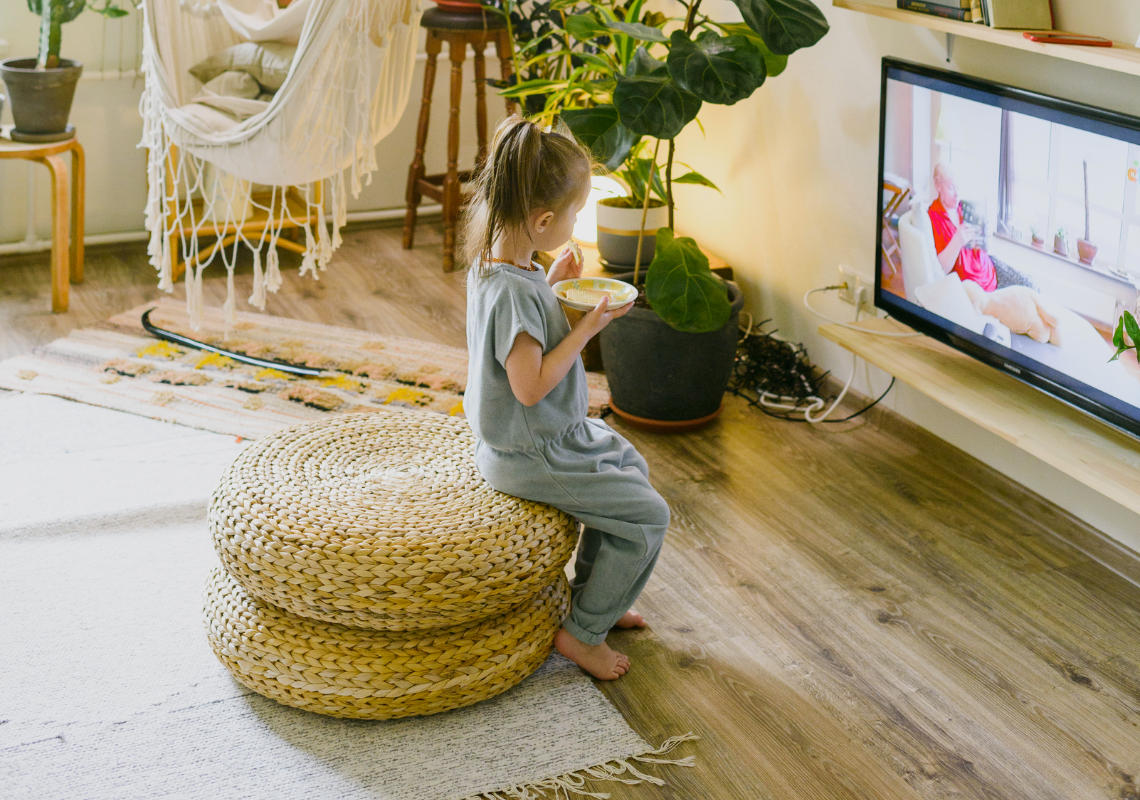19 Oct

Is your child having a hard time sleeping? Paying attention? Maybe they have suddenly developed new lingo or vocabulary that you hope they don’t repeat in front of Grandma. Is possible they are getting too much screen time?
The tricky part about screen time in a 2022 world is that we’ve just come off of 2 years of virtual learning, work and socializing. Never before has there be so much focus on not getting together in real life. For kids in Grade 1 or 2, they may not even know what school is typically like in person.
Our world revolves around electronic devices. Good, bad, and everything in between. While social media gets a bad reputation – and often for good reason – there are good uses for social media. Engaging with friends and family who live in different parts of the world, or even for reading fun blogs on playground websites! Most of us are well past the point of zero screen time to function properly in life, but there are definitely ways we could make better use of our screen time. Or better yet, reduce it to a reasonable amount of time that doesn’t feel wasteful.
The average person spends about 11 hours a day in front of a screen of some kind. Whether for work, TV time, or gaming, I think we can all agree, that it is likely too much time for most of us.
Keeping track of your family’s screen time can be a helpful way to decide when to cut back and to help identify time spent online that may be less productive than others. How much time is spent for work vs educational purposes vs points of interest vs mind-numbing scrolling. If you cut out wasted trips to the internet, then you’re already one step ahead in reducing screen time.
A slow reduction in screen time can be easier for the whole family to handle, instead of a cold turkey approach. Perhaps pick one or two small ways to reduce screen time and then add in another in a few weeks. For older children or teens who may be dealing with a bit of an addiction to screen time this can be a smoother transition. It’s unrealistic to expect that children will voluntarily be A-OK with a swift removal of all screens.
Some small, but effective steps to reducing screen time:
- Turn off auto-play features on streaming sites
- Create a phone-free zone for meals (if this is a big issue in your home, maybe start with one meal)
- Monitor your own screen-time and model more engaging behaviours, like putting the phone down when having conversations
- Decide what program to watch that night, and then shut the TV off once that program is over
- If you sleep with a TV on, set the sleep function, and then reduce the time slowly over a few weeks
- Organize outings for your children that are not situated around screen time. Instead of going to the cinema, sign them up for a night of mini golf
Once the small steps have been made, it’s much easier to move on to the bigger steps that will help build with balanced screen time.
- Remove TVs from bedrooms (yes, yours too!)
- Have a communal spot where devices are left each night, preferable an hour or more before bed
- Opt for the radio or music channels for background noise, while you play board games or read a book
- Set a schedule, and stick to it – which will feel easier if its already been whittled down to a modest amount
- Pick content mindfully – and discuss the importance of understanding what is real vs what is really scripted
Screen time is inevitable. Being overwhelmed or consumed by it does not have to be. Too much screen time, or too much wasteful content, can increase levels of depression, anxiety and obesity. A balanced, and methodical removal of the wastefulness of screen time can make it easier on your whole family.









Follow Dynamo Playgrounds